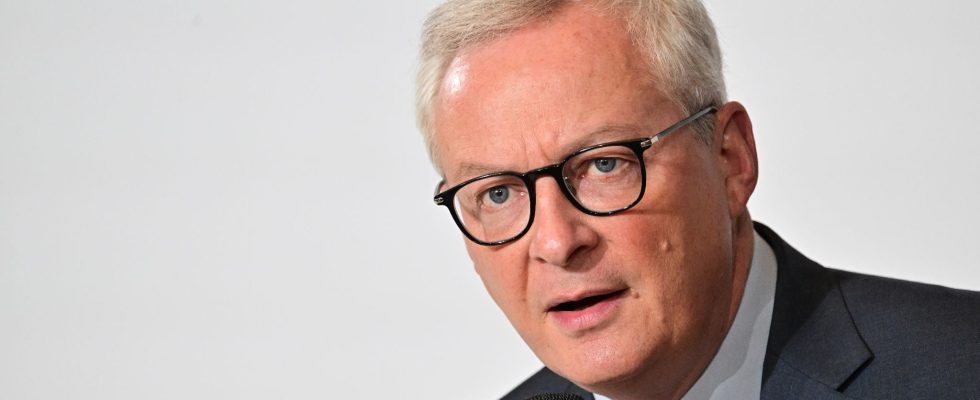The confirmation by INSEE, this Tuesday, March 26, of the slippage of the public deficit to 5.5% of GDP, against the 4.9% initially forecast by Bercy, further increases the pressure on the executive. And when you’re up against the wall, there’s nothing like summoning a sea serpent to distract attention. Cornered by the deterioration of public finances, the government is looking for avenues in all directions to get France out of the red zone. At the top of his list is the involvement of local authorities.
“This problem is not new. In 1986, a report commissioned by Charles Pasqua concluded that the expenditure of local authorities was growing faster than that of the State and that it was necessary to reduce them”, recalls Michel Bouvier, president of the association for the International Foundation of Public Finance (Fondafip). Except that the context has changed. In 2022, communities generated a surplus of 4.8 billion euros, after 4.5 billion in 2021. The same year, the negative balance of the State derailed to 148.4 billion euros, up of almost 4 billion euros. “It’s not simple. Overall, the communities are not doing so badly, they are even better than the State. But their situations, locally, are very diverse. Taxing them in an indiscriminate manner is surely not the right thing to do. choice”, judges a former senior official of the Court of Auditors.
Communities fear for their autonomy
So, how should we take this participation in the budgetary war effort? On April 9, the High Council of Local Public Finances, yet another watch launched with great fanfare on September 19 by Bruno Le Maire – but very silent since -, will meet to address the subject. “During the year when local budgets are finalized, it is difficult to apply. There is some room for maneuver on certain items such as the approximately 5 billion euros in subsidies from ministries to communities that the government can reduce discreetly if the credits are not committed”, anticipates Michel Klopfer, consultant specializing in the finances of local authorities. But for what effectiveness? “The strategy for controlling public spending must target where there is a lack of efficiency. The planer policy is the laziest there is,” exclaims the former head of the Court of Auditors.
Communities see this offensive as a threat to their fiscal and financial autonomy. They are holding back the abolition of the housing tax and the progressive abolition of the contribution on the added value of businesses (CVAE). “It was not the town halls who asked for the housing tax to be nationalized. Since 2010, if the State had simply respected its word and not modified the mechanisms, 71 billion euros could have replenished the coffers communities and the State would not have had to compensate”, points out David Lisnard, the mayor of Cannes and president of the Association of Mayors of France.
Upcoming showdown?
Communities also cite the need to respond to the challenges of the energy transition. During its latest budget cut, the government reduced the amount of the green fund – which is intended for them – by 400 million euros for 2024. “Local authorities are tied hand and foot because they depend a lot on state funding. “State. They have few resources of their own. Should we prioritize the sustainability of public finances to the detriment of the proper functioning of municipalities, departments and regions?” asks Michel Bouvier. “More and more, the State is putting communities under supervision. The more it has grown, the more it has taken away their autonomy, the less effective it has been and the more the accounts have deteriorated,” assures David Lisnard. .
If the government leaves the door open to dialogue, it seems, according to the recent declarations of Emmanuel Macron and the Minister of the Economy, determined to push its pawns. The standoff could then set in. “LR is marginalized on the national level, but it still has local power. I don’t see what could lead them to pay tribute to the government, the same for the PS which has strongholds locally”, judges an expert of local finances. The political-accounting debate has only just begun.
.
